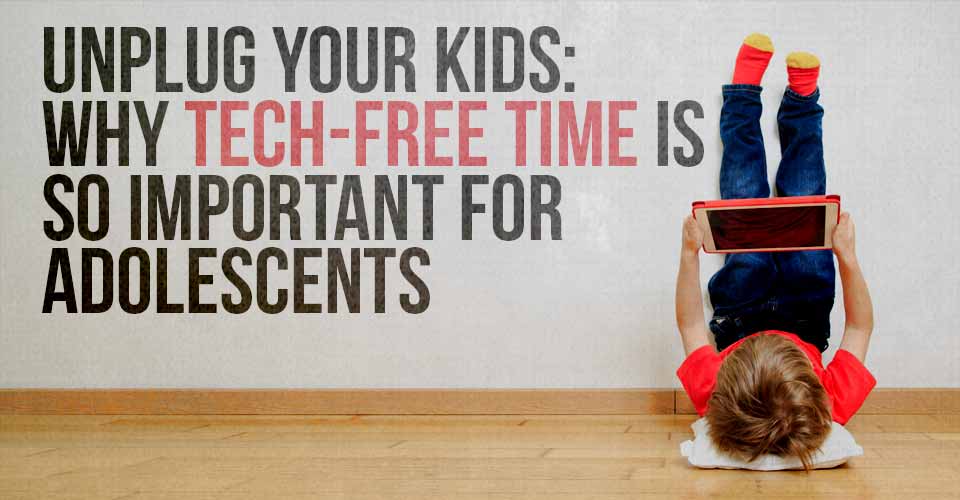
In an increasingly-connected world, it can be difficult to get young adults to understand the benefits of disconnecting from time to time. Research has shown, however, in multiple studies across a variety of populations accounting for a number of variables, that unplugging is essential to the healthy growth and development of adolescents. Here’s why
Buy an “Intelligence is sexy” t-shirt!
Disconnecting Actually Reconnects
Research shows that disconnecting from smartphones, tablets and other technological means of connecting increases real connections in the physical world. When kids aren’t distracted by the screen in their hands, they are more likely to notice and participate in their surroundings. This encourages the development of healthy social skills.
Furthermore, studies suggest that when kids spend time in nature, they are more likely to socialize and create connections between other people. Nature-specific group walks have proven an excellent means of teaching teenagers typically plugged into the electronic world the importance of making unplugging a priority.
Developing Time Management Skills
For adolescents, developing effective time management skills is essential to success: academic and extracurricular success during school, and the groundwork for successful career skills. Time management and prioritization are skills essential in every career path. Research shows that kids who learn these skills in adolescence are more likely to implement them as adults.
While technology is incredibly important in our ever-connected world, knowing when to shut it off is just as important as knowing how to use it effectively. It’s a near-certainty that your employer will make the tech you need to do your job well available to you, but it’s up to you to determine when to use it and when to shut it down. Certainly, tech as a workplace distraction is also a well-studied problem. Effective time management skills help to curb this.
Too Much “Screen Time” is Making Kids Angry, Lazy, and Moody
Getting Better Sleep
High-quality sleep is essential at every stage of life, but for the developing adolescent mind it is especially crucial. Study after study has shown the effects of blue light on circadian rhythms and sleep deprivation. Additionally, exposure to electronics may interfere with the nervous system, adding another layer of problems to falling and staying asleep.
Tried-and-true methods such as no electronics an hour or so before bedtime, establishment of a standard bedtime routine, and having a fairly dark, quiet place to sleep are important environmental factors that also contribute to kids getting better sleep. Having electronics in the bedroom can impact their effectiveness.
Impacts on Creativity, Productivity, and the Body
The effects of technology on creativity and productivity have been well-studied in adolescents. Research published by The Wilderness Society has shown that time spent outdoors, away from technology, helps boost creativity as well as strengthen efficiency at work. “[I]nteracting with nature has real, measurable benefits to creative problem-solving that really hadn’t been formally demonstrated before,” says David Strayer, who co-authored the study.
The Kids Are Alright: Most Young Americans Accept Evolution Over Creationism
Electronics also take a physical toll. Problems such as “tech neck” are especially harmful to developing adolescents. Heavy use of smartphones have pronounced physical impacts on the human body, and these effects are compounded in adolescents.
In Conclusion
The important take-away here is that banning the use of technology isn’t particularly effective: your child will likely just rebel, or become -understandably- angry if you remove their main form of communication. Not to mention that if you use your smartphone as much as most users, you look terrifically hypocritical. It does give you a great opportunity, however, to help your child learn time-management techniques and open them up to the gorgeousness of the natural world, simply by choosing to tune out the technological one.

